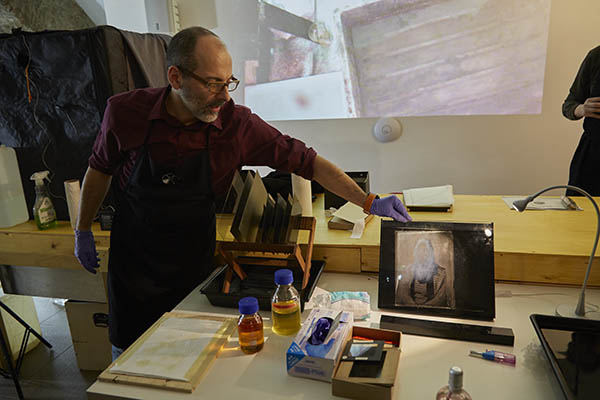Within the exhibition Images of Science. Scientific Photography in the Collections of the Museo Galileo, two educational workshops show how the camera obscura works and introduce visitors to earliest photographic techniques.
They are recommended for adults and children aged 10 and over and are conducted in Italian.
The camera obscura: an ancestor of photography
Workshop by Gianni Miglietta
Saturday 1 July, at 3.30 pm
The camera obscura—the underlying principles of which have been known since antiquity—was long used by artists as a device to capture and fix objective reality in their paintings.
This workshop will demonstrate how the camera obscura was used by artists from Vermeer and Canaletto to the Impressionists. Interactive models will enable participants to see and understand the close working relationship between the image-projecting camera obscura, the drawing techniques of artists, and photography that contributed to the birth of artistic movements between the 19th and 20th centuries.
Wet-collodion photography
Workshop by Associazione Fotonomia
Saturday 8 July and Saturday 16 September, at 3.30 pm
In the wet-collodion process, which became popular between the 1850s and 1880s, all the steps involved in taking a photograph—from exposing the plate to developing and fixing the image—are carried out in a short period of time. This technique is therefore particularly suited to demonstrations because the audience can watch the entire process in real time.
The equipment for this workshop consists of a large format view camera and a portable camera obscura. The staff will replicate each step of the wet-collodion process, as it was applied by 19th-century photographers in their ateliers: shooting the picture, developing and fixing the plate, and finishing, both of ambrotype (made of glass) and tintype plates (made of coated metal). Participants will also be able to watch what is happening inside the camera obscura by means of an infrared camera.
The cost for participation is included in the entrance fee.
Reservations are recommended at 055 265311 or at This email address is being protected from spambots. You need JavaScript enabled to view it.


